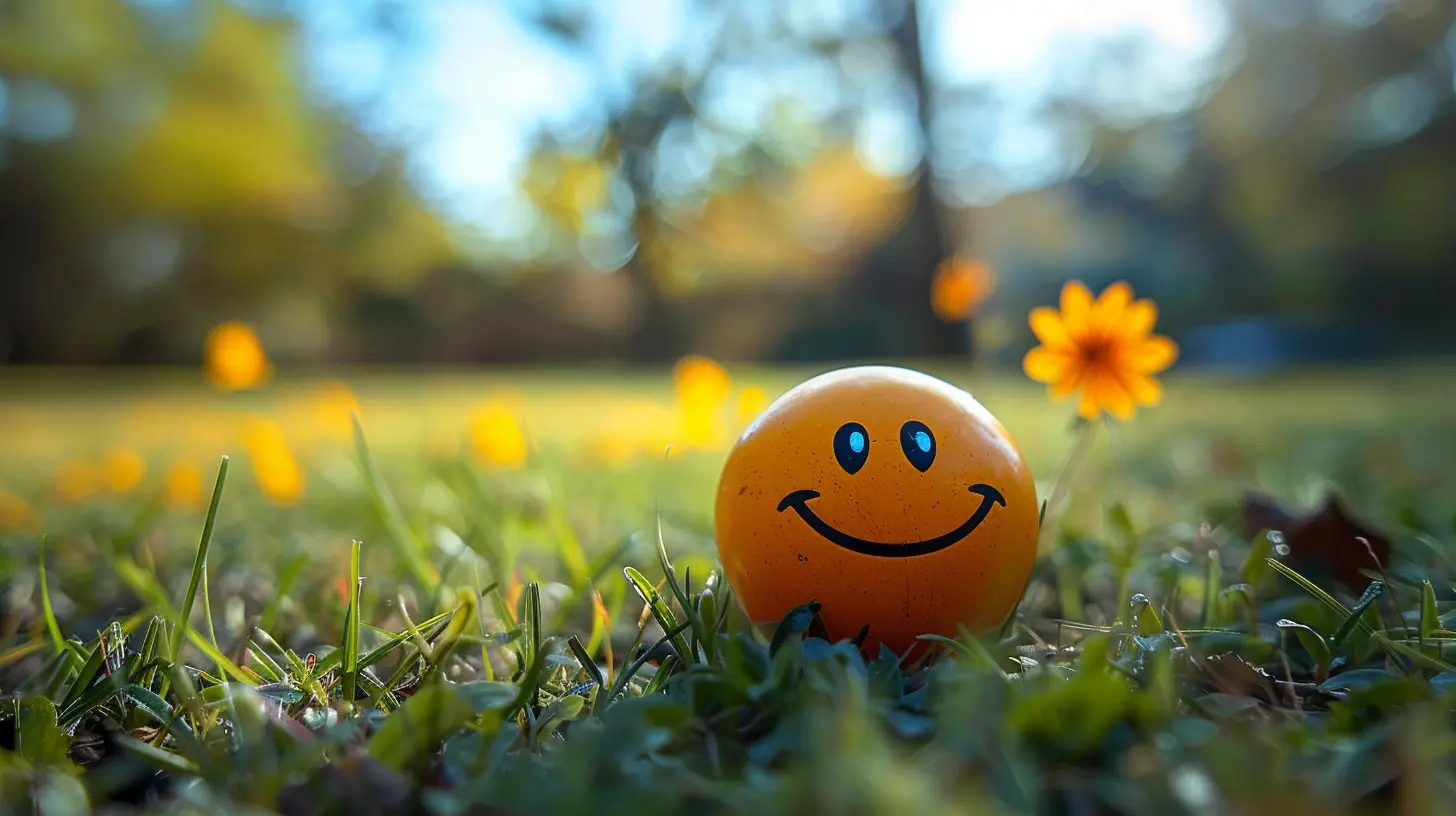The Psychology of Happiness: Why Chasing It May Make You Less Happy
2 September 2025
Happiness—it's what we're all after, right? We set goals, dream big, work hard, and try to create a life that brings us joy. But what if I told you that the very act of chasing happiness might actually be making you less happy?
It sounds counterintuitive, but psychology suggests that the more we obsess over happiness, the harder it becomes to achieve. So, why does this happen? And what can we do instead to cultivate genuine joy in our lives? Let's dive into the fascinating psychology of happiness! 
The Happiness Paradox: Why The Chase Backfires
Imagine you're trying to catch a butterfly. If you run around wildly, swinging your hands and chasing it, it flutters away. But if you sit calmly, letting it come to you, it might just land softly on your shoulder. Happiness works the same way—the harder you chase it, the more elusive it becomes.Psychologists call this the Happiness Paradox. When we focus too much on being happy, we start setting unrealistic expectations. We think, "I'll be happy when I get that job, find the perfect partner, or take that dream vacation." But what happens when those moments come? Sure, there's a temporary high, but it fades quickly.
This constant pursuit creates a cycle of dissatisfaction. You're always waiting for the next big thing, rather than appreciating the happiness already present in your life. 
The Science Behind Happiness
So, what exactly makes us happy? Science has some interesting answers!1. The Hedonic Treadmill: Why Happiness Doesn’t Last
Ever noticed how getting what you want—whether it's a new car, a promotion, or even winning the lottery—only makes you happy for a short time? That's because of something called the Hedonic Treadmill.This concept suggests that no matter how excited we get about positive life changes, we always return to a baseline level of happiness. It’s why lottery winners often go back to their original level of happiness after a few months, and why people who experience setbacks eventually bounce back.
Chasing happiness through material success or external achievements can feel like running on a treadmill—you're moving, but you’re not really getting anywhere.
2. The Role of Expectations in Happiness
Another happiness killer? Unrealistic expectations.If you believe happiness means constant joy and zero problems, you’re setting yourself up for disappointment. No one's life is perfect, and happiness isn't about erasing hardships—it's about learning to find joy despite them.
In fact, studies show that people who expect life to be perfect tend to feel more disappointed, anxious, and unsatisfied than those who accept life’s ups and downs.
3. The Happiness Trap: Overthinking Joy
Oddly enough, thinking about happiness too much can make you miserable.A study published in the journal Emotion found that people who valued happiness excessively were actually more stressed, anxious, and depressed. The reason? They scrutinized every emotion they felt—if they weren’t happy, they saw it as failure.
It’s like staring at the clock while waiting for water to boil. The more you focus on it, the longer it seems to take. 
What Actually Brings Lasting Happiness?
If chasing happiness doesn’t work, then what does? The good news is that real, lasting happiness comes from within—and it’s about mindset, not milestones.1. Gratitude: The Simple Secret to Joy
Want an instant happiness boost? Start with gratitude.Studies show that people who practice gratitude regularly—whether by keeping a journal or simply acknowledging the good things in life—are significantly happier than those who don’t.
Why? Because when you focus on what you already have, you stop feeling like something is missing.
Try this: At the end of each day, jot down three things you’re grateful for. It could be as simple as a warm cup of coffee or a kind text from a friend. Over time, this small habit rewires your brain to focus on the positives.
2. Living in the Present: The Power of Mindfulness
Happiness isn’t in the past or the future—it’s happening right now.Mindfulness, the practice of being fully present in the moment, has been shown to reduce stress and boost overall well-being. When you stop worrying about what’s next and truly engage in the now, happiness naturally follows.
Next time you eat your favorite meal, instead of scrolling through your phone, savor every bite. When you're with loved ones, be with them—mentally and emotionally. These small shifts can make a huge difference.
3. Connection: The #1 Predictor of Happiness
If there’s one happiness hack backed by tons of research, it’s this: Strong relationships = a happier life.Harvard’s 80-year study on happiness found that the quality of our relationships is the biggest predictor of long-term happiness—not money, success, or fame.
So, invest in meaningful connections. Call an old friend, plan a game night, or simply have a deep conversation with someone you love. Happiness thrives in connection.
4. Purpose Over Pleasure
While instant gratification feels good in the moment, true happiness comes from purpose—doing things that bring meaning to your life.Ask yourself: What makes me feel fulfilled? It could be volunteering, creating art, helping others, or pursuing a passion. When you focus on what genuinely matters to you, happiness becomes a natural byproduct. 
The Key Takeaway: Stop Chasing, Start Living
Happiness isn’t something you chase—it’s something you create.Instead of constantly looking for the next thing to make you happy, focus on the simple moments that bring joy today. Appreciate what you have, nurture your relationships, and find meaning in the little things.
Because, in the end, happiness is less about reaching a destination—and more about enjoying the journey along the way.
So, take a deep breath, smile, and remember: Happiness isn't a prize to be won. It's a way of living.
all images in this post were generated using AI tools
Category:
Psychology Of HappinessAuthor:

Alexandra Butler
Discussion
rate this article
1 comments
Lillian Wagner
Great insights! It's so true that sometimes, the more we chase happiness, the more elusive it becomes. Embracing the journey and savoring small joys can make all the difference!
September 2, 2025 at 3:57 AM

Alexandra Butler
Thank you! I'm glad you found the insights valuable. Embracing the journey and appreciating small moments is truly key to finding lasting happiness.


